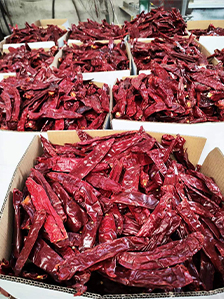- No. 268 Xianghe Street, Economic Development Zone of Xingtai city, Hebei 054001 China
- Byron@hbhongri.cn
paprika oleoresin safe
Exploring the Safety of Paprika Oleoresin A Comprehensive Overview
Paprika oleoresin, a natural extract derived from the fruit of Capsicum annuum, is celebrated not only for its vibrant color and flavor but also for its potential health benefits. Commonly used as a food coloring and flavoring agent in various culinary applications, this ingredient has gained popularity across the food industry. However, as with any food additive, concerns regarding its safety have emerged, prompting further investigation into its health effects.
What is Paprika Oleoresin?
Paprika oleoresin is a concentrated extract obtained from dried paprika peppers. The extraction process involves solvent extraction, which isolates the pigments, primarily carotenoids such as capsanthin and capsorubin, along with essential oils. The result is a robust oleoresin that imparts a rich red color and a slightly sweet, mild flavor, making it a sought-after ingredient in sauces, cheeses, processed meats, and snack foods.
Safety Assessments and Regulatory Status
The safety of paprika oleoresin has been evaluated by various food safety authorities worldwide. In the United States, the Food and Drug Administration (FDA) regards paprika oleoresin as Generally Recognized As Safe (GRAS) when used in accordance with good manufacturing practices. Similarly, the European Food Safety Authority (EFSA) has conducted assessments that support its safety as a food additive, provided that it meets specified purity criteria.
Research indicates that paprika oleoresin is unlikely to pose health risks when consumed in typical dietary amounts. However, excessive consumption of any food additive can lead to adverse effects. It is essential for consumers and manufacturers to adhere to recommended usage levels to ensure safety.
Nutritional Benefits and Potential Risks
paprika oleoresin safe

Paprika oleoresin is not only a coloring agent but also packs a nutritional punch. It contains a variety of antioxidants, including carotenoids, which may help combat oxidative stress in the body. Antioxidants play a vital role in protecting cells from damage and may contribute to a reduced risk of chronic diseases. Moreover, some studies suggest that the compounds within paprika oleoresin could have anti-inflammatory and antimicrobial properties.
Despite its benefits, individual reactions to paprika oleoresin can vary. Some individuals may experience allergic reactions or sensitivities, particularly those with a history of allergies to peppers. It's also worth noting that excessive consumption could lead to gastrointestinal discomfort for certain individuals. Therefore, it is crucial to monitor personal tolerance levels and consult a healthcare provider if any adverse reactions occur.
Best Practices for Usage
To safely incorporate paprika oleoresin into your diet, consumers should keep in mind a few best practices 1. Moderation Use paprika oleoresin in moderation as part of a balanced diet. It is essential to be aware of the quantities used in manufactured products. 2. Read Labels When purchasing processed foods, pay attention to ingredient labels to understand how much paprika oleoresin is included. Look for products with natural ingredients and transparent sourcing.
3. Consult Professionals If you have concerns about allergies or sensitivities, consult a healthcare professional or a registered dietitian. They can provide personalized advice based on individual health needs.
4. Diverse Diet Embrace a varied diet rich in fruits and vegetables, which can offer a broader spectrum of nutrients and minimize reliance on any single ingredient or additive.
Conclusion
Paprika oleoresin, when used responsibly, is regarded as a safe and beneficial ingredient in the culinary world. Its FDA and EFSA status as a safe food additive, coupled with its potential nutritional benefits, makes it a valuable addition to many foods. As with all dietary components, moderation and awareness are key to enjoying its flavors and benefits while minimizing any potential risks. By understanding paprika oleoresin's safety profile and following recommended practices, consumers can confidently incorporate this vibrant ingredient into their meals.
-
Turmeric Rhizome Powder: A Golden Treasure from Roots to TableNewsJul.28,2025
-
The Versatile Application Of Crushed Red Hot Peppers: Lighting Up The Red Flames On The Dining TableNewsJul.28,2025
-
The Paprika: A Touch Of Vibrant Red In Color, Flavor, And CultureNewsJul.28,2025
-
Ground Turmeric: A Modern Examination of an Ancient SpiceNewsJul.28,2025
-
Capsicum Liquid Extract: Features, Applications, and ChallengesNewsJul.28,2025
-
Application of Capsicum Liquid Extract in FoodNewsJul.28,2025







